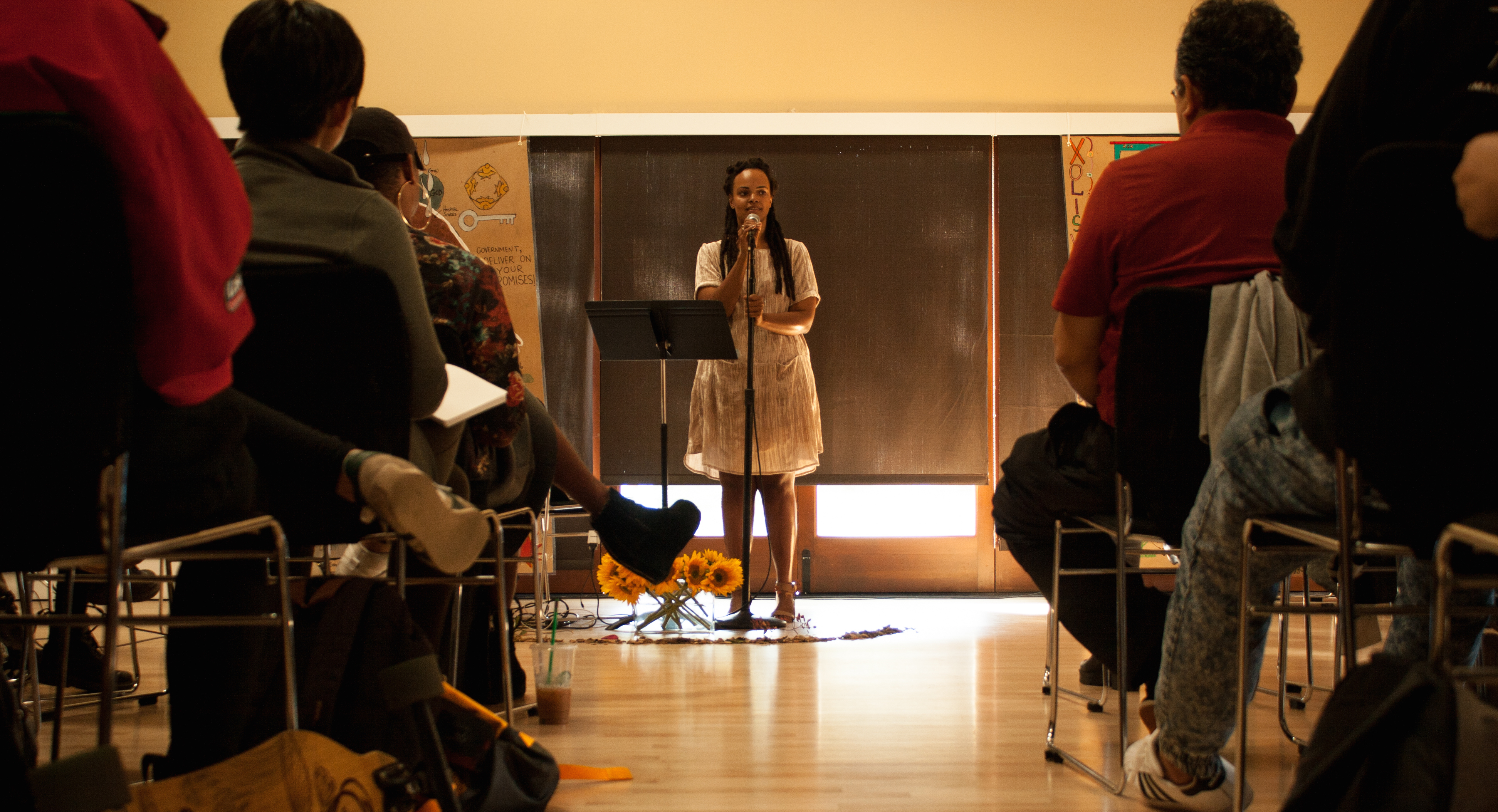She stands barefoot at the podium amid flowers and fallen leaves. Looking out across the room, her eyes light up. Silent before the microphone, she meets the eyes of every audience member fully and intimately. Inhaling, exhaling — and then once more — she begins.
To simply label Thursday’s presentation by poet and playwright A-lan Holt at the Black Community Services Center as a “talk” or a “lecture” would be a dishonor to the deep spirituality and communal atmosphere of her work. The presentation, part of a quarter-long lecture series introducing students to leading artists and scholars affiliated with the Institute for Diversity in the Arts, was Holt’s discussion of the bigger topic: “Art Practice as Spiritual Practice.”
Holt introduced herself, not with her own voice, but with the voice of her grandmother through a monologue that she wrote in a recent play, declaring herself to be the “fixing kind,” or a woman immune to troublesome relationships. Holt then segued into her own life through poetry, performing the words of a young, burning love and ultimate loss, bringing the lecture into the present.
Upon welcoming the audience more formally, Holt invited the listeners into her more personal life. With fearless honesty she shared her life in its entirety, gracefully telling of hardships, addiction, lost love, art practice and the spirit. Most of all, she reflected on the importance of the relationship between the act of creation and the human soul.
While the start of the presentation was intensely personal, the flow of information did not remain one-sided. After explaining her sources of creative energy, Holt opened it up to the audience. One man’s response: “The freedom and awareness of my spirit that I gain from dance is unsurpassable.” A-lan’s response: “Then we will dance.” Chairs were pushed aside, and Holt was eagerly surrounded in the center space. With closed eyes, the group let the music consume them — breaking free from the confines of a weekday slump and delving into true self-expression.
Within a sixty-minute period, Holt had broken down every known barrier of a traditional lecture: The rows of chairs were broken up, and the audience gathered in a free-form ring around the poet with everyone seated on the floor. In a final Q&A, Holt spoke on her creative process and plans for the future. From her recently published poetry collection, entitled “Moonwork,” she read the heartbreaking revelation of a lost love and recognition of the necessity of “deep and radical honesty” with an intimate lover. Along with allusions to past grief came the speaker’s tremendous strength as she spoke of her investigation of the self as “Black, feminine, mother, spirit.” To present such a personal body of work in the ultimately utilitarian presentation room of the BCSC is not easy, and to fill it with discernible emotion is something that only a true artist can do. For A-lan Holt, it was simple.
Though one might have expected to enter the BCSC and sit in front of an all knowing, famed artist, what Holt provided was pure spirit. She was not focused on the established rhetoric of what it means to be an artist, but rather on the importance of a precise connection with the self. Through personal expression, she created an atmosphere of deep introspection and communal consciousness of the self as art.
There is a new lecture in the series every Wednesday from 4:30-6 p.m. at Black Community Services Center. All are free, and open to the public.
To find out more about Holt or her poetry collection, “Moonwork,” visit http://www.a-lan.me/.
Contact Olivia Wittting at owitting ‘at’ stanford.edu.
